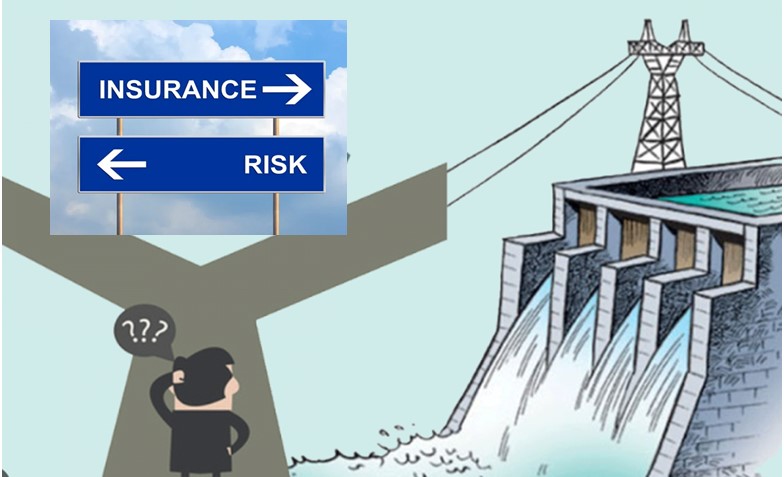Experts Call for Urgent Reform in Hydropower Insurance Policy

Kathmandu – Stakeholders in Nepal’s insurance and energy sectors have called for the immediate formulation of a new, comprehensive insurance policy tailored specifically to the hydropower sector, warning that the current system is putting billions of rupees in investment at risk.
Despite years of dialogue between the Independent Power Producers’ Association of Nepal (IPPAN) and the Nepal Insurers’ Association, no consensus has been reached on how to insure hydropower projects effectively. The existing approach of treating hydropower assets like general property is now widely seen as outdated and problematic, particularly in the face of rising climate-related disasters and increasing project risks.
At an interaction organized by the Nepal Insurance and Risk Management Association (NIRMA) on Wednesday, experts stressed that the disconnect between project promoters and insurers has undermined the reliability and purpose of insurance coverage in the hydropower sector.
Recent developments have worsened the situation. International reinsurance companies have stopped covering Nepal’s hydropower risks, leaving domestic insurers unable to underwrite projects. Promoters’ demand for cheap or no-tariff insurance, paired with a lack of awareness about proper risk coverage, has made it increasingly difficult to manage liabilities.
Prof. Dr. Fatta Bahadur KC, former chairman of the then Insurance Committee, noted that similar challenges in the aviation sector were resolved through policy reform and proactive leadership. “Now is the time to craft a new insurance framework for hydropower, based on a fixed risk percentage and realistic understanding of the sector,” he said.
Dr. Ravindra Ghimire, Chairman of NIRMA and a seasoned insurance expert, emphasized the need to design policies grounded in Nepal’s geography, risk exposure, and investment structures, rather than copying international templates that may not be applicable locally.
Nepal Insurers’ Association President Birendra Baidwar admitted that current property insurance packages do not reflect the distinct nature of hydropower projects. He also pointed out that most promoters seek all-inclusive packages at the lowest cost, often by shopping for multiple quotes—an approach that undermines proper risk assessment.
According to Baidwar, insurance for the construction and operational phases of hydropower projects should be handled separately, with specific coverage for materials, third-party liabilities, structural integrity, and equipment.
Experts also criticized the practice of using insurance merely to obtain bank loans or complete procedural requirements for power purchase agreements (PPA), rather than viewing insurance as a core investment safeguard.
However, Chairman of the Insurance Authority, Sharad Ojha, acknowledged the seriousness of the issue and committed to coordinating with stakeholders to develop practical solutions.
